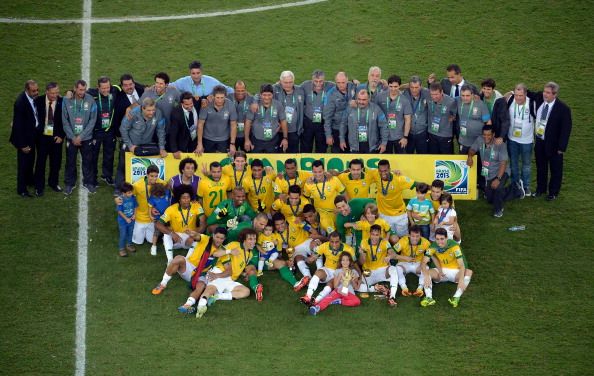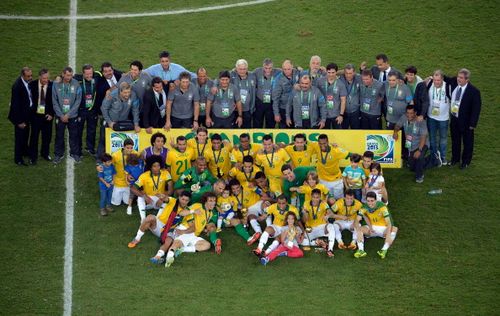
2013 FIFA Confederations Cup Review - Selecao end La Roja's reign

Brazil were crowned the champions of the Confederations Cup
The FIFA Confederations Cup, which in a way is football’s counterpart to cricket’s Champions Trophy, remains a prestigious and popular event and faces no threat of being scrapped in coming years. However, just like the Champions Trophy, it also is overshadowed by the big brother – FIFA World Cup.
Played a year before the World Cup in the country hosting the mega event, Confederations Cup is considered as a mere warm-up exercise for the host nation to show that they have the resources to successfully host the World Cup the following year. Rather than being considered an individual event, it is considered a preview to the biggest sporting event on Earth, which takes too much sheen off it.
Formerly called the King Fahd Cup, the tournament’s 2013 edition was played in Brazil, hosts of 2014 FIFA World Cup, amidst waves of anti-government protests by the Brazilians. Despite facing a serious threat of postponement due to the large-scale demonstrations, the tournament was successfully organized and won by the host nation, temporarily subduing the protests and reviving hopes of the entire Samba nation of reclaiming the prestigious Jules Rimet Trophy.
Brazil’s rout of world and European champions Spain in the final may have well given us a glimpse of what is to come when they welcome 31 of the best national teams next year.
And Neymar, well, he too has come of age.
From 15-30 June 2013, the tournament was played across 6 different stadia in 6 Brazilian cities, including the site of Uruguay’s famous 1950 upset of the Selecao, the historic Maracana in Rio de Janeiro.
Apart from hosts Brazil, the participating teams were World and European champions Spain, 2011 Copa America champions Uruguay, 2011 Gold Cup winners Mexico, 2013 African Cup of Nations winners Nigeria, 2011 Asian Champions Japan, 2012 OFC Nations Cup winners Tahiti and 2012 European Championships runners-up Italy, who were awarded a spot in the event because of Spain’s dual status as the World and European champions.
Brazil were clubbed in Group A alongside Italy, Japan and Mexico while Spain, Uruguay, Nigeria and Tahiti formed Group B.
Group A was all about the Brazilians and their new wonder kid Neymar. The new Barcelona acquisition was on a roll as the Selecao breezed through their group undefeated, scoring a goal each in all their group matches. Featuring a number of talented youngsters playing for different European heavyweights and those on their way to Europe, Brazil dished out attacking football, giving their countrymen plenty to cheer about in times of crisis.
Italy, meanwhile, were uncharacteristically sloppy at the back, leaking 8 goals in 3 matches, but did just enough to follow their hosts to semifinals. Mexico saw all their goals being scored by “little pea” Javier Hernandez and finished 3rd while Japan went out winless.